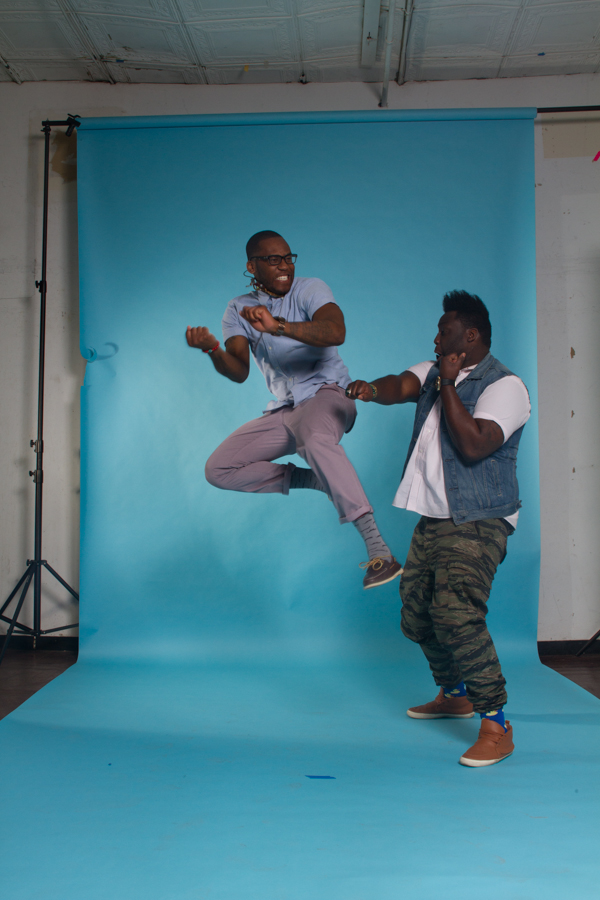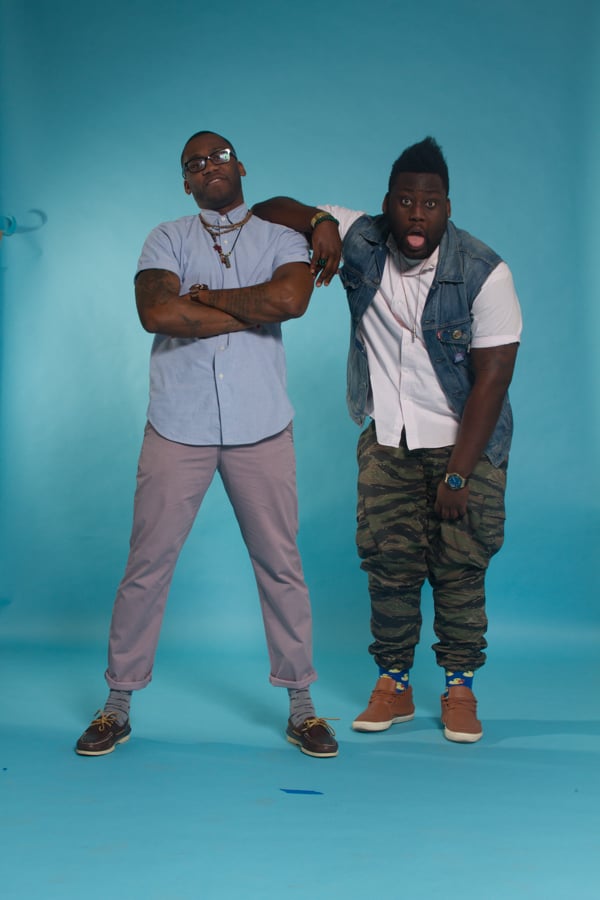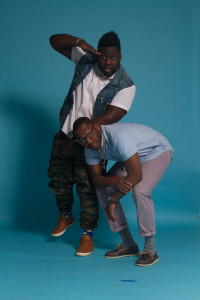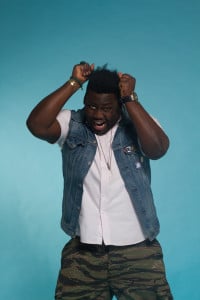On Regrouping After the Loss of a Frontman & Creating Collaboratively to Evolve Their Genre
http://www.youtube.com/watch?v=pCU_ZvsIfqg
Oxymorrons push the boundaries of what it means to be hip-hop, and in the process ensure that a vital genre to the culture stays ever-evolving and avoids becoming a clichéd, geriatric version of its former self. Brothers KI and Deee (extra “e” because…well, why the hell not?) got their start early, surrounded by music from a young age. As teenagers, they decided that music was going to be their career, and haven’t stopped the creative process since. They’ve got a new project, For Fun and Games, coming out this summer, and the video for their new single “Alone” is out now.
We recently sat down with the boys to chat about building a brand, dealing with the loss of a frontman, and how best to prepare a live hip-hop show in order to grow your fanbase.
One of your original members left the group around 2010. How do you deal with that as a band, from both a creative standpoint and a business standpoint?
Deee: Well, let’s start at the beginning…because it’s a long story. KI and his friend formed a group back in 2008. I was on tour with another group at that time, but those situations fell through. So we all got together after that and formed the Oxymorrons. Omar Hernandez was originally part of the group, also, and then Ony [Irvin] started to lose his hearing due to medical complications, and couldn’t continue. So me, KI and Omar continued and added Matt [Mayz], our drummer. So that’s basically how Oxymorrons formed.
So Ony actually lost his hearing completely?
Deee: Well, he started to lose his hearing in one of his ears and couldn’t continue making music. His doctors actually told him to stop or he [ran the risk of] going completely deaf.
How do you come back from lineup changes like that? Do you have any advice for other bands that might be going through something similar?
Deee: It’s very difficult, because in the beginning our band had three frontmen. So Ony played a very vocal role and a really big part in the production. But if music is what you love and what you end up doing, honestly you’ve got to be able to transcend [problems] and get through that. You CAN change the face of your band, and a lot of groups do it. It’s literally fighting through and getting your already-created fanbase to continually believe you can continue without that person. With Oxymorrons, we created a band identity through the name. So we branded everything through “Oxymorrons.” No one person stood out more than another, so it made it easier to transition when one person fell in or out.
So Oxymorrons is more of a brand, where no one person is bigger than the group.
KI: Yeah, exactly.
How do you actually describe your sound, or are labels even relevant anymore?
Deee: We honestly never liked labels, but we know you need a label for people to place you in the industry, because they have to put you in some sort of box for people to understand [what you are]. Early on, we coined the term “clasher music,” because we were blending a lot of different genres. We don’t really fit into one particular genre because of the sounds [we make] and the things we like to do. We don’t really label ourselves anymore; it’s just good music.
Does it bother you if other people put a label on you?
Deee: It doesn’t bother us because our roots are historically hip-hop; we do use hip-hop a lot in our music. So, it’s cool as long as you’re hearing the music and are getting the experience. Whatever you want to categorize it as, then you can take it that way. As long as you’re getting the message we’re sending out, then we don’t have a problem with that at all.
Can you break down your songwriting and creative processes for us?
KI: It’s basically collaborative. We all sit down and pick different sounds and plan where we want to go with the songs. Deee is very good with the structures of the songs and guiding how things move. And we all just push things together, coming up with the words…say if I was writing the hook, Deee would say, “Yo, you can put this word with that word” and we take it from there…
Do you guys ever write alone and then bring completed ideas to the group?
Deee: It’s mostly collaborative, but here and there, of course sometimes [someone will bring something] and we’ll just think it’s amazing. So we’ll try to structure it out and get the collective thoughts of the group. Verses, a lot of the time we tend to write along, but as far as the complete song, we almost always construct it [together].
How do you approach the recording studio, then? Do you begin with demos and flesh them out from there?
Deee: Sometimes the writing is done in the studio, while the music is still being created. It varies; it’s a really organic creative experience when it comes to us. We just kind of make it all work…a lot of people will have a formula, or a routine. We don’t really have a routine because the music is based on how we’re feeling in the moment, and what’s going on in that moment.
Anything else you want to share about your studio process?
KI: It’s actually pretty cool. Sometimes we build a melody first, and we’ll build the whole song around the melody. Sometimes the words will be there first, and then we build the melody around the words. We like to co-produce a lot and bring other people in; it’s a collective experience, because we truly believe you can learn and gain from everyone [involved], so there’s a lot of collaborative work [in the studio].

Sometimes hip-hop is hard to translate to the stage. I’m not sure how to put this in a nice way, but I’ve seen an awful lot of terrible hip-hop shows.
Deee: [laughs]
You guys are on the opposite end of the spectrum there. So maybe you can shed some light on why it’s so difficult to put on a good live hip-hop show and what you’ve done to be successful with that aspect of the band…
Deee: A lot of the core factors of hip-hop…well, I wouldn’t say they’re not entertaining…but in general, I’ve learned by speaking to a lot of hip-hop artists that rehearsal for shows isn’t always mandatory. They just get up there and perform to the track, rather than putting on a performance. You see, with us, we actually structure out a performance; we rehearse as a band. Even from the beginning, we had a live show before we had a CD to give anyone. We were opening up for Lupe Fiasco and we didn’t have any [recordings] to hand out. The live show is what drove everything for us, so we focused on that and always wanted to improve on that and make it better. It’s always been the focal point.
We should be able to entertain anyone, whether you’re a fan or just seeing us for the first time. You should leave the show loving us, regardless.



